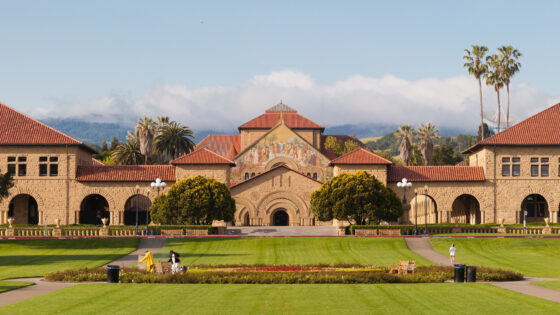http://www.familysecuritymatters.org/challenges.php?id=818521
Television news viewers around the world, as February progressed, saw images of Muslims rioting at the Temple Mount and Al-Aqsa mosque complex in Jerusalem. As has happened so often before, Muslim radicals accused Israeli authorities of historical and cultural vandalism, this time because the Jewish state’s personnel are reconstructing an access ramp from the vicinity of the Western Wall to the upper level Islamic precincts.
While witnessing such violence, it might surprise Americans to know that an assistant professor at Barnard College, Nadia Abu El-Haj, has emerged as a leading academic agitator seeking to discredit the historic Jewish connection to Jerusalem and even to the land of Israel. In her volume Facts on the Ground, published by the University of Chicago Press in 1992, El-Haj surrenders herself to an unrestrained revision of Middle Eastern, Biblical, and Islamic history. Her outward intent is to transform the image of Israeli archeology into that of an ideological enterprise aimed at destroying Muslim heritage, while she blatantly seeks to obliterate Jewish heritage. Her underlying objective is to deny that Jews as a nation ever existed. Viewed without anti-Israel bias, El-Haj’s work appears about as reliable and legitimate as theories that space aliens created Stonehenge.
But in the politicized world of Middle East research, to be a crank is to be honored – as a “scholar” no less valuable than a rent-a-mob of stone-throwing street youths to the anti-Jewish cause “intellectualized” by another charlatan, the late Edward Said. And when bogus theory is provided with the seal of approval of Barnard and a dust jacket from the University of Chicago, the Israel-bashers have won a major victory. Prof. El-Haj can congratulate herself for introducing into the American academic environment the hallucinated claim that Jewish identity is a modern, nationalist, and Zionist-imperialist “construct” rather than a product of thousands of years of recorded history and religious tradition.
Much more may be said about Prof. El-Haj’s extremist approach to Israel. But she also appears utterly ignorant of the Islamic legacy she would claim to defend. For her, intifada comes before Islam, and not only alphabetically. The Koran, Islam’s sacred text, states without ambiguity that God “said to the Israelites: Dwell in this land. When the promise of the Hereafter comes to be fulfilled, we shall assemble you all together.” The Koran is not a creation of Zionist-imperialists engaged in “inventing” the Jews, or reinventing them in the manner of El-Haj.
Israeli work on the access structure at the Temple Mount is being carried out in a professional and culturally-sensitive manner. Yet Muslim governments like that of Indonesia have called on the Israelis to stop. Some Islamist apologists engage in naked blackmail, arguing that the Israelis should end the work because the only alternative will be more Arab violence.
Encountering radical Muslim rhetoric, most Westerners will immediately discern a political agenda. The Islamist ructions over Jerusalem would excise the ancient Jewish history of the city and assert a unique Muslim claim to authenticity in its cultural legacy. While Jerusalem is considered a “third” holy site for Muslims, nearly as sacred as Mecca and Medina, the Islamic historical record on this matter is inconsistent, although this explanation for Arab rage is widely repeated in global media. There is no coincidence, but considerable cynicism, in the naming of the el-Fatah terror squads the “Al-Aqsa Martyrs’ Brigade.”
Islamist claims about Jerusalem are, in reality, questioned among Muslims. Shia Muslims consider Karbala, the site in Iraq where events occurred at the origin of their sect’s history, as superior to Jerusalem in importance. In Ottoman archives, Jewish and Christian tenancy in Jerusalem confers special privileges on their religious representatives living under Muslim rule. Some Muslim dissenters have claimed that the Dome of the Rock, a major part of the Haram-i-Sharif, i.e. the Islamic complex on the mount, was built as a political act against domination over the Muslims by the caliph of Damascus. Throughout Muslim history, the development of Jerusalem was neglected in comparison with that of other Muslim religious centers, aside from Mecca and Medina, and listed here from west to east, rather than by importance – but including Fez and Marrakesh, Cairo, Istanbul, Damascus, Kerbala, Baghdad, Isfahan, Shiraz, and Qom, Samarkand, and Delhi. The association of Jerusalem with the Prophet Muhammad’s out-of-body experience known as the “Night Journey” has been ruthlessly exploited by anti-Israel extremists as a pretext for disruption and violence.
Muslim rioting in Jerusalem, driven by conspiracy theories, is especially absurd when one compares Israel’s record in protecting monuments of all faiths with that of Saudi Arabia, where fanatics of the Wahhabi sect, the state interpretation of Islam, have devastated the ancient architectural and cultural heritage of Muslims. In one of many appalling such examples, Saudi Wahhabis destroyed the house in which the Prophet Muhammad lived with his wife Khadijah and replaced it with public toilets. Similar madness impelled the destruction of the Bamyan Buddha statues in Afghanistan at the urging of al-Qaida. When Islamist radicals destroy, Muslims are silent and the rest of the world, if they even hear about such depredations, soon forgets them. When Israelis engage in legitimate reconstruction and research, they are targeted for brutal disorders, and the global network in which Barnard professor El-Haj is a leading figure supports a renewed campaign of anti-Jewish aggression. But as a Saudi liberal dissident has commented, “unfortunately, the Wahhabis have oil income, while the Israelis have only intellectuals.”
FamilySecurityMatters.org Contributing Editor Stephen Schwartz is author of “The Two Faces of Islam: Saudi Fundamentalism and Its Role in Terrorism”, and Executive Director of the Center for Islamic Pluralism [www.islamicpluralism.org]. He was a staff writer for the San Francisco Chronicle from 1989 to 1999. This article was written for Campus Watch, a project of the Middle East Forum.



